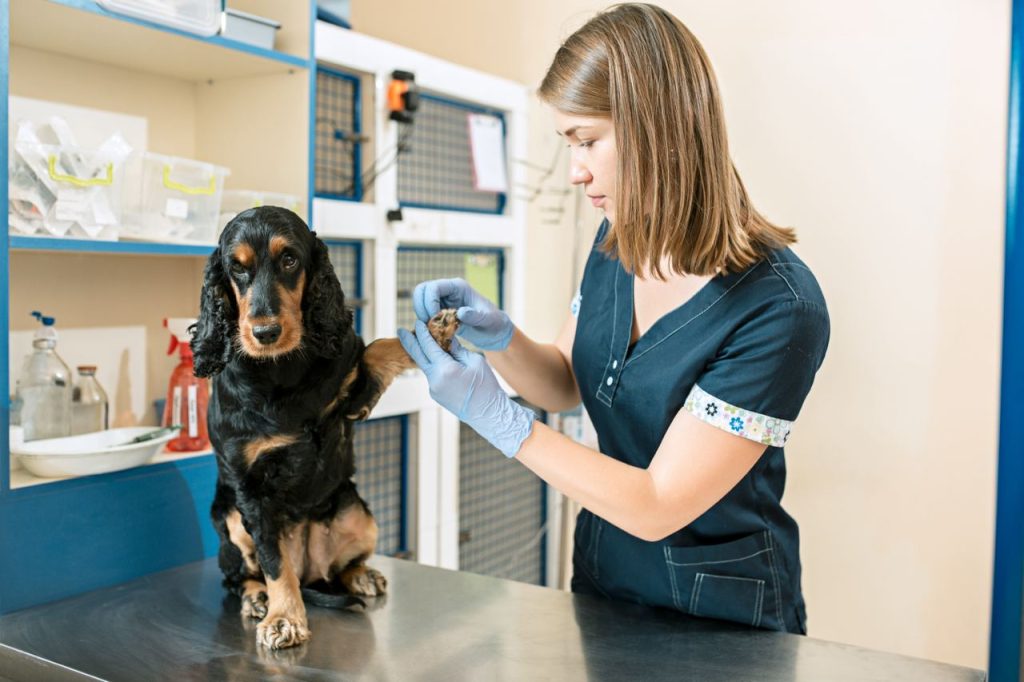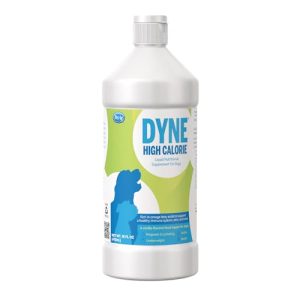Are you worried your dog might be suffering from allergies but unsure how much testing will cost? Understanding the price of dog allergy testing is important before you take the next step for your pet’s health.
You want clear answers without any surprises or hidden fees. You’ll discover exactly what influences the cost, what types of tests are available, and how to choose the right option for your furry friend. Keep reading to make the best decision for your dog’s well-being and your budget.
Factors Affecting Dog Allergy Testing Costs
Several factors influence the cost of dog allergy testing. Understanding these can help pet owners prepare for expenses. Prices vary widely depending on the type of test and other conditions. Knowing what affects cost can guide better decisions for your dog's health.
Type Of Allergy Test
Different allergy tests have different prices. Blood tests usually cost less than intradermal skin tests. Skin tests require more time and skill, increasing the price. Some tests check for specific allergens, while others are more general. The complexity and accuracy of the test affect the final cost.
Location And Clinic Fees
Costs vary by geographic location. Urban clinics tend to charge more than rural ones. Each clinic sets its own fees based on overhead and expertise. Specialized veterinary dermatologists may have higher rates. Travel distance and convenience can also affect pricing.
Breed And Size Considerations
Breed and size impact the testing approach and cost. Larger dogs may need more blood drawn for accurate results. Some breeds are prone to certain allergies, influencing test selection. Tailored tests for specific breeds can raise costs. Size also affects the amount of medication needed for skin tests.
Additional Diagnostic Procedures
Sometimes, allergy testing requires extra procedures. Blood work, skin scrapings, or biopsies may be necessary. These add to the total cost of diagnosis. Follow-up visits and treatments can increase expenses as well. Comprehensive care ensures accurate diagnosis but costs more.

Credit: www.dogster.com
Common Types Of Dog Allergy Tests
Skin tests and blood tests are common ways to find dog allergies. Each type varies in cost depending on the method and location. Understanding these tests helps estimate the total expense for allergy diagnosis.
Understanding the cost of dog allergy testing involves knowing the types of tests available. Each test offers unique benefits and can influence the overall cost. Let’s explore the most common types of dog allergy tests you might consider for your furry friend.Intradermal Skin Test
The intradermal skin test is often considered the gold standard for allergy testing in dogs. This test involves injecting small amounts of allergens under your dog’s skin to observe reactions. Veterinarians usually recommend this test for its accuracy, particularly when pinpointing environmental allergens. You might find it slightly intimidating, but your dog’s comfort is a priority, and sedation is often used during the procedure.Blood Test
Blood tests are a popular alternative for diagnosing dog allergies. They require a simple blood draw, which is then analyzed for antibodies related to specific allergens. This method is less invasive than skin testing, making it a preferred choice for some pet owners. It’s especially useful when you suspect food allergies or when your dog cannot undergo sedation.Elimination Diet Trial
The elimination diet trial is a practical approach to identifying food allergies in dogs. It involves feeding your dog a limited-ingredient diet and gradually reintroducing potential allergens. While it requires patience and consistency, this method can be an eye-opener for discovering specific food triggers. It’s a DIY approach where you play a crucial role in monitoring your dog’s reactions. Have you ever tried switching up your dog’s diet to identify an allergy? It might seem daunting, but the insights gained can be invaluable. Choosing the right allergy test for your dog depends on several factors, including your budget, the severity of symptoms, and your vet’s recommendation. Each test has its own set of advantages and can guide you towards the best way to manage your dog’s allergies effectively.Typical Price Ranges
Understanding the typical price ranges for dog allergy testing helps you plan better for your pet’s care. Allergy tests vary widely in cost depending on the method used and where you live. Knowing what to expect can save you from surprises and guide you toward the best option for your dog and your budget.
Cost Of Skin Testing
Skin testing often involves injecting small amounts of allergens just under the skin and observing reactions. This test typically costs between $150 and $300. Prices may vary based on the number of allergens tested and the clinic’s location.
Many pet owners find this method effective because results are almost immediate. However, it requires your dog to be calm and cooperative during the process. Have you considered whether your dog can handle this type of testing?
Cost Of Blood Testing
Blood testing measures your dog’s immune response to allergens through a blood sample. The cost usually ranges from $200 to $350. Some clinics bundle this with follow-up consultations, which can affect the overall price.
This option is less stressful for your dog and works well if skin testing isn’t possible. But remember, blood tests sometimes have less accuracy compared to skin tests. Would you prefer convenience over precision for your dog’s diagnosis?
Cost Of Dietary Trials
Dietary trials involve feeding your dog a special hypoallergenic diet to identify food-related allergies. These trials can last several weeks and cost anywhere from $50 to $150per month, depending on the diet chosen.
Though less expensive upfront, the total cost can add up due to the length of the trial. Patience is key here, as you must observe any changes in symptoms carefully. Are you ready to commit to a trial period to uncover hidden food sensitivities?
Insurance And Payment Options
Paying for dog allergy testing can be a concern for many pet owners. Understanding insurance options and payment choices helps manage costs better. Various methods exist to cover or reduce the price of testing. Exploring these options ensures a smoother process for both you and your dog.
Pet Insurance Coverage
Some pet insurance plans cover allergy testing costs. Coverage depends on the policy and provider. Many plans include diagnostic tests as part of illness or condition benefits. Check your policy details before scheduling tests. Pre-existing conditions might not be covered. Submitting claims promptly helps avoid delays in reimbursement.
Payment Plans And Discounts
Veterinary clinics often offer payment plans for costly procedures. These plans let you pay in smaller, manageable amounts over time. Ask your vet about available plans before testing. Some clinics provide discounts for multiple tests or returning clients. Seasonal promotions or membership programs may also lower costs. Always inquire to save on expenses.
Out-of-pocket Vs. Insurance
Paying out-of-pocket means covering costs directly at the clinic. This option offers immediate payment without waiting for claims. Insurance may reduce expenses but involves paperwork and waiting periods. Out-of-pocket is faster but can be more expensive upfront. Insurance can save money if the policy covers the test. Decide based on your budget and urgency of testing.
Saving On Allergy Testing
Saving money on dog allergy testing doesn’t mean you have to compromise on accuracy or care. Understanding your options and making informed choices can help you find the best value for your pet’s health. Let’s look at practical ways to cut costs without cutting corners.
Choosing The Right Test
Not every allergy test offers the same level of detail or price. Some tests focus only on common allergens like pollen or dust mites, while others cover a wider range including food sensitivities.
Ask your vet which test suits your dog’s symptoms best. Sometimes a simpler, targeted test can save you money and still provide useful results.
Have you ever felt overwhelmed by too many test options? Narrowing down based on your dog’s history can make the decision easier and more budget-friendly.
Comparing Veterinary Clinics
Prices for allergy testing vary widely between clinics. Calling around and asking for estimates can reveal significant savings.
Some vets offer package deals that include follow-up visits or treatment plans, which might be more cost-effective than paying for each separately.
Don’t hesitate to ask about discounts, payment plans, or special offers. Clinics sometimes have seasonal promotions or loyalty programs that reduce costs.
At-home Testing Kits
At-home allergy testing kits for dogs have become popular and often cost less than clinic tests. They allow you to collect samples in the comfort of your home and send them to labs for analysis.
These kits can be convenient and save you a vet visit fee, but their accuracy varies. Reading reviews and choosing kits backed by reputable labs is key.
Have you tried an at-home test? Sharing your experience can help others decide if this option fits their budget and needs.

Credit: pet-insurance-netherlands.nl
After Testing: Treatment And Follow-up Costs
After your dog’s allergy test results come back, the real journey begins—managing their condition effectively. Understanding the costs beyond the initial test helps you plan better for your pet’s health and your budget. Treatment and follow-up expenses can vary widely depending on your dog’s specific needs and the severity of their allergies.
Medications And Therapies
Medications are often the first line of defense after allergy testing. You might need to buy antihistamines, steroids, or specialized allergy shots (immunotherapy). Prices for these can range from $20 for basic medications to several hundred dollars for monthly allergy shots.
Therapies such as medicated shampoos or special diets may also be recommended. These add to your monthly costs but can significantly improve your dog’s comfort and skin health. Have you considered whether these ongoing treatments fit into your monthly budget?
Long-term Management Expenses
Allergy treatment is rarely a one-time fix; it requires ongoing management. This can include switching to hypoallergenic foods, buying supplements, or investing in environmental changes like air purifiers. Such expenses might not seem large individually but can add up over time.
Think about the bigger picture: are you ready for long-term spending that could be $50 to $200 per month? Planning ahead can prevent surprises and help keep your dog’s allergies under control without financial stress.
Follow-up Visits
Regular follow-up visits are crucial to track your dog’s progress and adjust treatments. These visits typically cost between $50 and $150 each, depending on your vet and location. Skipping these appointments might save money short term but could lead to more expensive problems later.
During these visits, your vet may recommend additional tests or modify medications. How often you need to come back depends on how well your dog responds to treatment. Are you prepared to commit to this ongoing care to ensure your dog’s quality of life?

Credit: vety.com
Frequently Asked Questions
What Is The Average Cost Of Dog Allergy Testing?
Dog allergy testing typically costs between $150 and $300. Prices vary based on test type and location. Consult your vet for accurate estimates and options.
Are Dog Allergy Tests Covered By Pet Insurance?
Most pet insurance plans do not cover allergy testing. Coverage depends on your specific policy. Check with your insurer before scheduling tests.
How Long Does Dog Allergy Testing Take?
Dog allergy testing usually takes 1 to 2 weeks. Results depend on the test type and laboratory processing times.
Can I Do Dog Allergy Testing At Home?
Home allergy test kits for dogs are available but less accurate. Vet-administered tests provide more reliable and comprehensive results.
Conclusion
Dog allergy testing costs vary depending on the type and location. Some tests are simple and affordable, while others may cost more. Knowing the price helps plan your budget better. Early testing can improve your dog’s comfort and health. Talk to your vet for the best options and prices.
Taking action now can reduce your dog’s allergy problems later. Clear information makes the process less stressful for you. Choose the right test to keep your dog happy and healthy.

Emily Barker is the founder of ChillDogLife.com, a space dedicated to helping pup parents discover the best dog products, lifestyle tips, and cozy ideas for happier homes.
A lifelong dog lover, Emily combines her passion for pets with a knack for research to share trusted recommendations on everything from toys and furniture to health and everyday care.
Her goal is simple: to make life easier, stylish, and more joyful for dogs and the people who love them.







